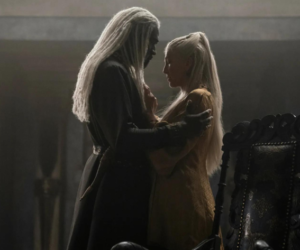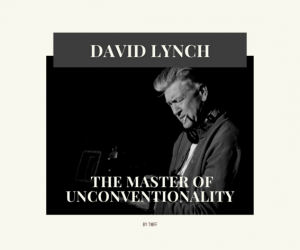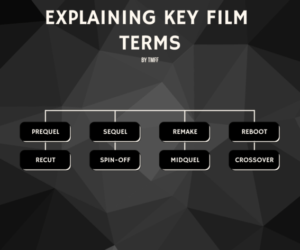The Witcher was quite a big thing last month, and for many people, it was the first series they watched this decade. Before giving it a go myself, I heard extremely diverging opinions: I’ve heard friends blasting it as badly made and unwatchable, and I’ve also had friends who described it as the new ‘Game of Thrones’. By the way, I’m not sure if that should be taken as a compliment or not, but that’s not the point. As someone who read (and liked) three of Andrzej Sapkowski’s books, and as someone who simply adored The Witcher videogames, I couldn’t miss it, although I had already been sort of put off by the horrible trailer. My verdict? It was okay – not great, not terrible. So, why the mixed feelings? I have 5 reasons.
1. Questionable casting choices
The casting has been hit-and-miss. But, it was always going to be this way. While newcomers will most likely have no problems whatsoever, fans of the games already have a very established view of who the characters are, how they look like and what their personality is. Stray too far from this image, and you may have a problem. The producers of the show have mostly paid attention to the characters they brought to life, making very good choices in case of Geralt, Ciri or Yennefer. However, at other times they paid too much attention to so called political corectness in the casting process, instead of trying to deliver a truly authentic experience. This in itself would not be an issue, but it’s a root cause for the next point.
2. Lack of a coherent backdrop
The novels are written by a Polish author, and the games are developed by a Polish company. For a game that takes place in a fictional medieval Eastern Europe and is inspired by Slavic culture and folklore, it would have been logical for the show to also have a heavy Polish involvement. Sadly, this is not the case, and the final product feels very Hollywood-ian for the most part. In its effort to be diverse, it dillutes the cultural connection it should have with the aforementioned part of the world, and instead feels like a cheap mishmash of fantasy elements. The Witcher’s main charm was the localisation of its fantasy, and the show makes a whole mess out of it.
3. Rushed story and pacing
I know many complained that the three different story arcs, unfolding in a non-chronological order over a significant period of time, are difficult to watch. In response to that, I will simply question their attention span. However, my own criticism does not target the manner in which the stories are woven together, but the pace at which such efforts are undertaken. Each episode is pretty much its own unique adventure, which is fine, mostly because the first book in the series (The Last Wish) takes a very similar route. However, in an effort to achieve this, a lot of the adventures’ charm is lost. The show sets off a daunting task of setting the universe, developing Geralt, Yen and Ciri and leading them through a variety of adventures, all in a handful of episodes. For the same number of episodes, the better approach would have been selecting a mere handful of adventures, but delving deeper into them, exploring underlying personalities, politics and giving them a unique flavour. WIth the current approach, the striga moment is very rushed in its exposition, an overwhelming amount of attention is given to the fight and making it as dramatic as possible, and is then rushed to a conclusion without giving it a proper send-off – no delving into outcomes and personal angles relating to the characters involved. Same goes for the Duny episode at Queen Calanthe’s court – a potentially lenghty and tense scene is rushed through in an instant.
4. Very few lesser evil moments
While it establishes the concept early on in the first episode, the show doesn’t do much in order to take it further. The charm of the games is making difficult decision when faced with two or more equally bad outcomes. Such a structure has made them a ray of morally grey sunshine in a sea of good vs evil productions. However, later on in the series, Geralt is almost never faced with morally grey choices. Sure, he has to make a lot of difficult personal choices, but that’s not the same thing. Hopefully Season 2 will give such matters more attention, because Season 1 massively missed a lot of open invitations to do so.
5. Poor use of music
The games had amazing, tailor-made music that retained a lot of folkloric and cultural elements in its melodic lines. Ladies of the Wood and The Fields of Ard Skellig are good examples of such pieces. However, just like its ambiguous setting, the series also fails to establish a coherent sound. Apart from one or two good songs, the score sounds empty and banale, and many times you simply forget it’s there. It’s another opportunity wasted.
















